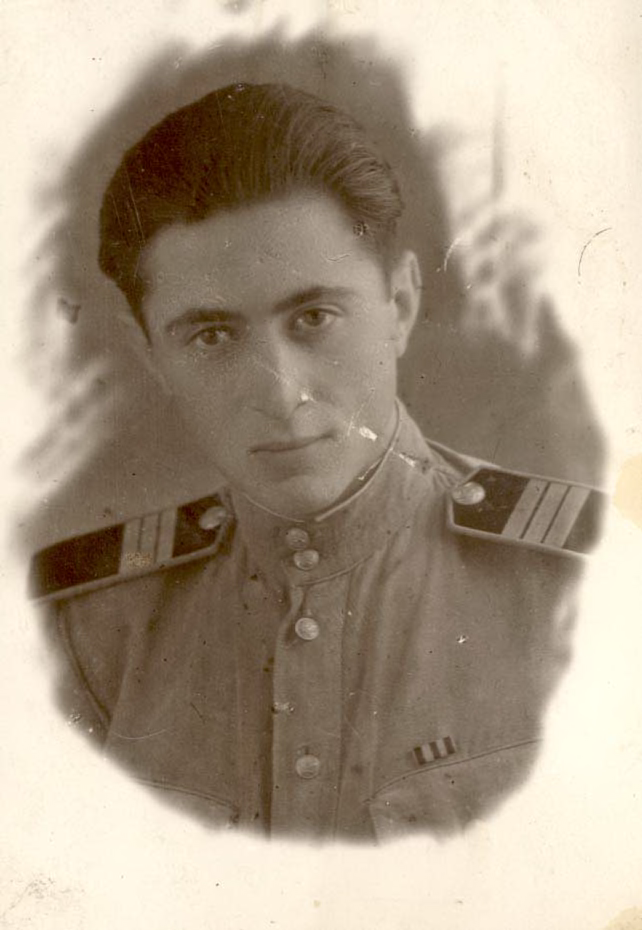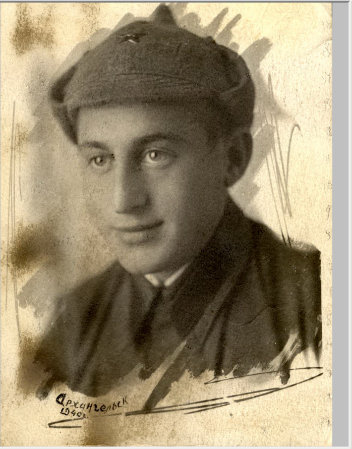Anzhel Bzheshche was born in 1919 in Kherson, southern Ukraine. His father David was a native of Poland (the last name "Bzheshche" is derived from "Brzeszcz", the Polish name of the city of Brest-Litovsk); he had served in the Czarist army and, after his discharge, he settled in Kherson and married a girl from the Kashepava family; thus, Anzhel was the cousin of Abram Radomyselskii and Semion and Sima Zanis. In the 1920s, the family moved to Baku, Azerbaijan, as did their relatives, the Radomyselskii and Zanis families. Anzhel mastered the Azerbaijani language, along with German.
In 1939, Anzhel Bzheshche was drafted into the Red Army. He was initially stationed in Azerbaijan, serving as a translator at the military prosecutor's office of the Border Troops and the Internal Troops. In 1940, he was moved to the north. Following the outbreak of the Soviet-German War in June 1941, Anzhel was transferred to the defense of Leningrad (present-day St. Petersburg). Because of his command of German, he was assigned to military intelligence, where he served as both scout and translator. On several occasions, Anzhel crossed the front lines to capture German informants. His last place of service was the 85th Rifle Division; his highest rank was sergeant major (starshina).
While serving south of Leningrad, Anzhel sent a steady stream of upbeat letters to his father David, his brother Kiva, and his cousin Sima Zanis. Thus, in a letter to Sima written in the winter of 1941-42, he gushed about the “good weather”, with the temperature dropping to 35-40 degrees centigrade below zero (-31-40 degrees Fahrenheit). In summer 1942, he wrote that his biggest problems were the mosquitoes and the lack of tobacco. He said nothing about the Siege of Leningrad, the famine ravaging the city, or the fact that he himself was starving. In January 1943, he expressed his confidence that “the enemy will be defeated this year, and we will be reunited.” Anzhel’s last dream failed to materialize: In February 1943, he was killed while returning from a raid across the German lines.
Anzhel’s younger brother Kiva (military documents give his first name as "Konstantin"), born in 1925 in Baku, was drafted into the Red Army in 1943. He served in the cavalry at the Iranian border, and was eventually discharged.








